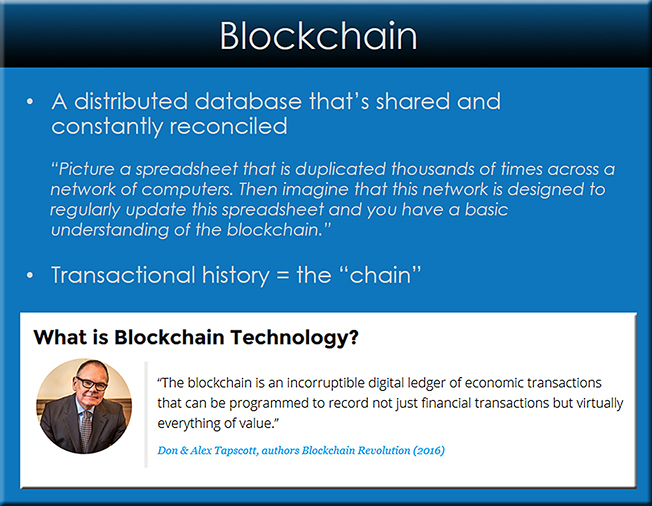Credentials, Reputation, and the Blockchain — from er.educause.edu by J. Philipp Schmidt
Using the blockchain and strong cryptography permits creating certifications that put us in control of the full record of our achievements. Recipients can share a digital degree with an employer while providing trustworthy proof that the degree was in fact issued to the person presenting it. This raises interesting questions about the nature of recognizing and accrediting achievements.
Excerpt:
The trail of credentials and achievements that we generate throughout our lives says something about who we are, and it can open doors that allow us to become who we want to be. Some credentials, such as university degrees, count more than others. But all of these credentials represent experiences that are part of our lives, signals of our achievements, and markers of communities we belong to.
Our current, mostly analog system for managing credentials is slow, complicated, and relatively unreliable. Creating a digital infrastructure for certificates has many advantages, and new technologies like the blockchain offer exciting opportunities. The stakes are high, however, because such a system could grow to represent our professional reputations as well, creating or limiting opportunities. We need to be thoughtful about its design and the type of institutions we trust to govern it.
From DSC:
This is one of the topics I was trying to relay back in February in our presentation at the 2017 NGLS Conference:










